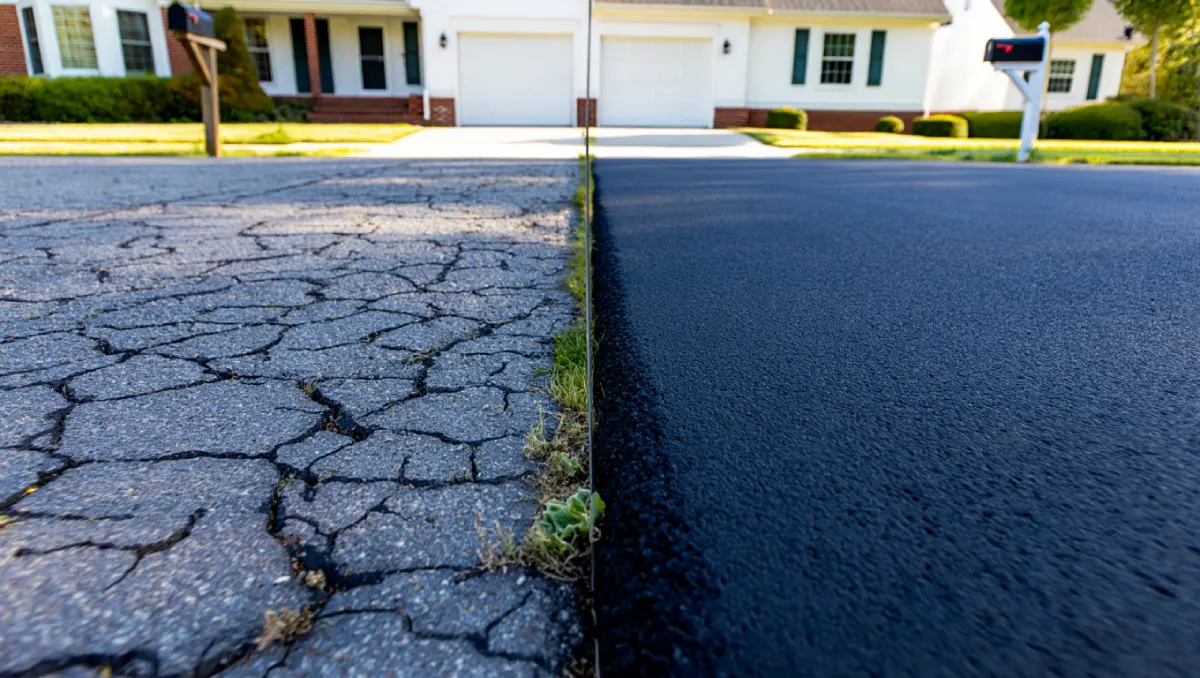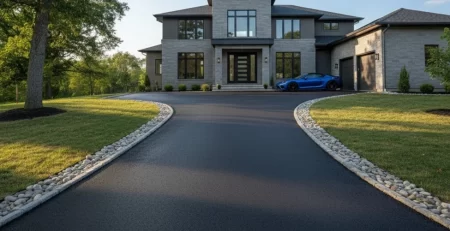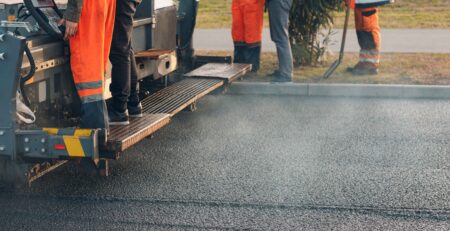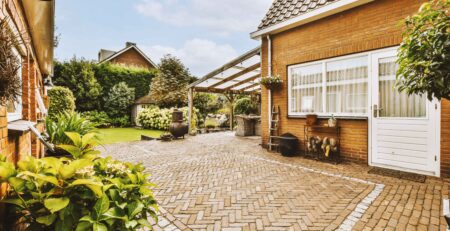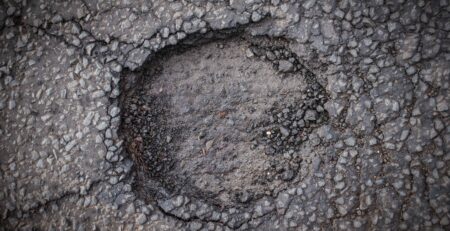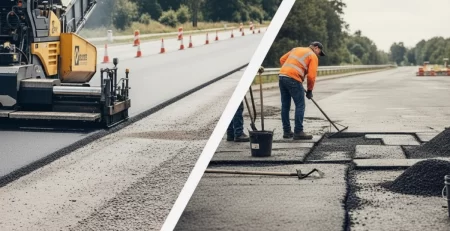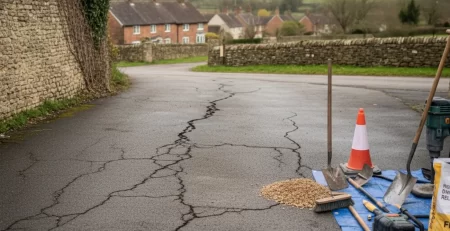How to Repair a Residential Driveway Fast and Effectively in the UK? 6 Steps
Your driveway takes a beating from heavy vehicles, harsh weather, and daily use, leading to cracks, potholes, and surface degradation that damage your home’s kerb appeal. Repairing a residential driveway doesn’t need to be overwhelming when you understand the right techniques and materials available across the UK.
From filling minor cracks to complete resurfacing with modern solutions like resin-bound driveways, homeowners have multiple fast and effective repair options. This guide reveals proven methods to restore your driveway’s strength and appearance, including cost-effective alternatives, professional installation techniques, and maintenance strategies that extend lifespan.
Steps to Repair a Residential Driveway Fast and Effectively in the UK
Successful driveway restoration requires a systematic approach that addresses damage at its source while creating lasting solutions.
Clean and Assess the Damage Thoroughly
Proper assessment forms the foundation of effective repairs. Remove all debris, dirt, and vegetation from the damaged areas using a wire brush and pressure washer.
Apply weed killer to plants growing in cracks to prevent regrowth that could compromise repairs. Examine the extent of damage carefully to determine whether you’re dealing with minor surface cracks or deeper structural issues.
Active cracks that continue widening require different treatment than dormant, stable cracks. This evaluation helps you select appropriate materials and decide between DIY methods or professional intervention.
Fill Small Cracks with Quality Filler
For cracks less than 6mm wide, asphalt crack filler or concrete patching compound provides quick, cost-effective solutions. Clean the crack thoroughly and remove loose material before application.
Use a caulking gun to apply filler evenly along the crack’s length. For cracks wider than 1/4 inch, insert backer rods before applying filler to ensure proper depth and prevent sagging.
Allow the filler to cure completely before driving on the repaired surface, typically 24-48 hours depending on weather conditions.
Repair Larger Potholes and Damaged Sections
Extensive damage requires more comprehensive patching techniques. Cut out the damaged section to create clean edges, removing all loose material and debris from the area.
Apply a gravel base layer to within 4 inches of the surface for stability. For asphalt driveways, use cold patch products or hot asphalt mix; for concrete surfaces, apply professional-grade concrete patching compounds.
Compact the patch material firmly to match the existing surface finish and ensure proper bonding.
Apply Professional Epoxy Injection for Structural Cracks
Epoxy injection restores concrete strength by bonding components and filling deep cracks with moisture-resistant solutions. This technique works exceptionally well for small to medium-sized structural cracks that threaten driveway integrity.
The specialized epoxy resin creates a strong bond that prevents water penetration and further deterioration. Professional contractors typically handle epoxy injection, as it requires precise application and specialized equipment for optimal results.
Consider Complete Resurfacing for Severe Damage
When damage covers extensive areas, resurfacing provides a cost-effective alternative to complete replacement. This process involves applying a new layer of material over the existing base, refreshing the appearance and functionality.
Concrete resurfacing offers a crack-resistant overlay that can last 10-15 years with proper maintenance. For asphalt driveways, applying a fresh tarmac layer restores smoothness while protecting the underlying structure.
Resurfacing costs significantly less than full replacement while delivering professional results.
Seal and Protect the Repaired Surface
Sealcoating extends driveway lifespan by creating a protective barrier against water, UV damage, and daily wear. For asphalt surfaces, apply a sealcoat every 2-3 years to maintain protection.
Wash the driveway thoroughly and allow complete drying before sealing. Apply the sealcoat evenly using a squeegee or brush, then add a second coat after the first dries for maximum protection. Allow at least 24 hours of curing time before using the driveway.
Modern Alternatives: Resin Bound Driveway Solutions
Resin-bound driveways represent advanced solutions that combine durability, aesthetics, and minimal maintenance requirements for UK homeowners.
Choosing resin-bound driveways installers in Essex and surrounding regions provides access to professional installation that transforms damaged surfaces into stunning, long-lasting driveways. These specialists mix natural stone aggregates with UV-resistant resin, creating permeable surfaces that prevent water pooling and comply with Sustainable Urban Drainage Systems regulations.
The installation process begins with groundwork preparation, including excavation and sub-base installation using compacted gravel and stone. Professional installers then apply the resin-bound mixture to depths of 12-15mm for pedestrian areas and 15-20mm for vehicle access.
This creates a smooth, wheelchair-friendly surface that can be installed over existing asphalt or concrete.
Resin driveway cost typically ranges from £2,800 to £10,000, depending on size, complexity, and material choices. Average pricing sits around £120 per square meter, with permeable resin driveway cost varying based on aggregate quality and decorative edging options.
While initial investment exceeds traditional materials, cheap resin driveways prove cost-effective long-term through minimal maintenance and 25-year lifespans.
Benefits of Gravel-Look Resin Surfaces
Gravel-look resin surfaces in the UK deliver the aesthetic appeal of traditional gravel without displacement, weeds, or constant maintenance.
Unlike loose gravel that quickly becomes messy and requires ongoing replacement, resin-coated driveways keep stones permanently bonded in place. The smooth surface finish prevents potholing common with traditional gravel while maintaining the natural stone appearance homeowners desire.
Clear resin driveways showcase aggregate colors beautifully, from Cotswold stone beige to slate grey, allowing customization that matches your home’s style. The permeable surface manages rainwater effectively, preventing flooding issues common in UK gardens and driveways.
These surfaces handle British weather exceptionally well, resisting frost damage and remaining stable through hot summers. Installation typically takes 1-2 days with professional resin-bound driveways installers, providing a quick transformation without extended disruption.
The neat, level finish works brilliantly for both driveways and garden paths, creating wheelchair-friendly access that traditional gravel cannot match.
Cost Considerations and Budget Planning
Understanding resin driveway cost estimates helps homeowners make informed decisions about repair versus replacement options.
Stone resin driveway cost varies based on aggregate type, with premium natural stones commanding higher prices but delivering superior aesthetics and durability. The cost of bonded resin driveway installation includes groundwork preparation, materials, and professional labor, typically totaling £6,000 for medium-sized projects.
Affordable driveways balance initial investment with long-term value. While custom resin driveways cost more upfront than basic repairs, they eliminate ongoing maintenance expenses associated with traditional materials.
Resin driveways in the UK offer 10-year guarantees from reputable installers, ensuring peace of mind and protection for your investment.
Resin driveways Hertfordshire and resin paving driveways Hertfordshire pricing reflects regional labor rates and material availability. Many installers offer price match guarantees and no-obligation quotations, helping homeowners secure competitive rates.
Professional tradespeople provide accurate estimates based on specific site conditions and requirements.
Professional Installation Versus DIY Repairs
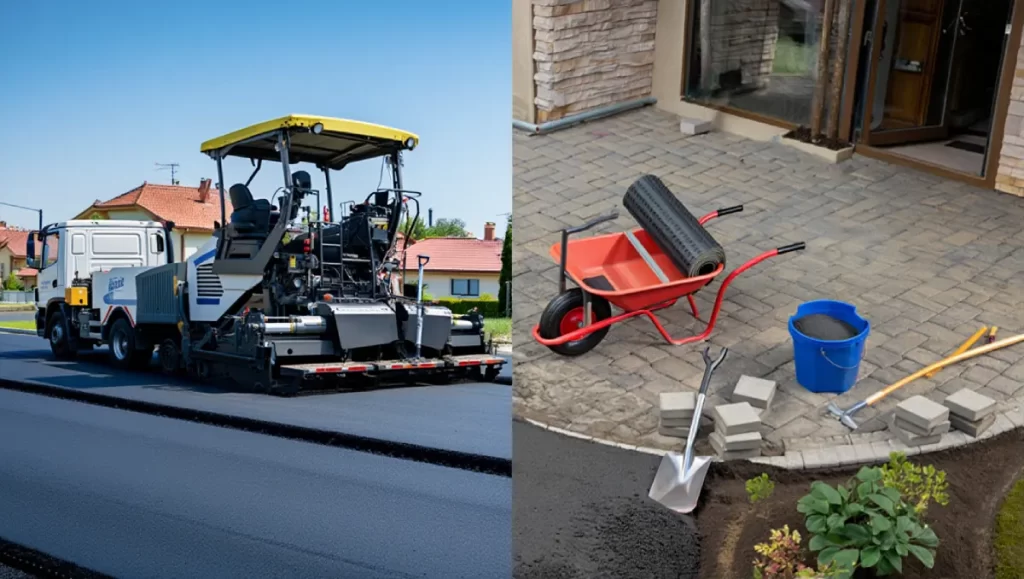
Selecting between professional services and DIY methods depends on damage severity, available time, and technical expertise.
Natural stone resin driveways require professional installation to ensure proper mixing ratios, application techniques, and curing conditions. Specialists use forced action mixers and precise measurements to create durable surfaces that withstand heavy use without cracking.
DIY repairs suit small cracks and minor damage when homeowners have appropriate materials and follow manufacturer instructions carefully. Basic tools like caulking guns, trowels, and wire brushes enable competent DIYers to complete simple repairs for £4 to £12 in materials.
Professional contractors offer a comprehensive assessment that detects underlying issues invisible to untrained eyes. They use high-quality materials and proven techniques that deliver longer-lasting results.
Professional repairs typically cost £80 to £800, depending on damage extent, but eliminate risks of improper application that could worsen problems.
Advanced Technologies for Long-Term Durability
Modern road surfacing services in the UK employ cutting-edge techniques that enhance driveway longevity and performance.
Professional contractors implement strategies for preventing roadway degradation through proper drainage systems, quality materials, and protective sealants. Regular maintenance schedules, including cleaning, sealing, and prompt repair of minor damage prevent small issues from escalating into costly replacements.
Advanced road construction technology has revolutionized residential driveway installation with permeable materials that manage stormwater effectively. UV-resistant resins prevent fading and deterioration from sun exposure, maintaining appearance for decades.
Heat-resistant formulations withstand temperature fluctuations without cracking or softening.
Quality resin-bound driveways incorporate these technological advances, offering surfaces that require minimal intervention beyond occasional cleaning. The durable finish resists oil stains, handles heavy vehicles, and maintains structural integrity through freeze-thaw cycles.
Professional installers ensure proper sub-base preparation and material application that maximize these technological benefits.
Maintenance Tips for Extended Driveway Life
Regular upkeep preserves your driveway investment and prevents premature deterioration.
Sweep the surface weekly to remove loose debris that can cause wear and trapped moisture. Use mild detergent mixed with water and a soft brush to clean stained areas gently, then rinse thoroughly with a hose or pressure washer.
Allow the surface to dry completely before use.
Inspect your driveway every 6-12 weeks for emerging cracks, loose stones, or weed growth. Pull out weeds immediately to prevent root systems from damaging the surface structure.
Keep a repair kit containing resin binder, aggregate stones, mixing bucket, an application trowel, and protective gloves for prompt fixes.
Apply UV-resistant sealer every 2-3 years to ward off sun damage and fading. This protective layer acts as sunscreen for your driveway, preventing color loss and surface deterioration.
Avoid parking heavy vehicles in the same spot repeatedly, and clean oil spills immediately to prevent staining.
UK Regions We Cover for Professional Surfacing
Total Surfacing Solutions provides dependable, high-quality driveway and surfacing services across key regions of the UK. Our largest service areas include Hertfordshire and Essex, where we support homeowners, commercial clients, and public organisations with durable, modern surfacing options.
Hertfordshire:
In Hertfordshire, we help transform outdoor spaces with expertly installed tarmac driveways, resin bound finishes, and a selection of premium surfacing materials. Our team also completes road resurfacing in Hertfordshire, car park construction, and playground surface installation. With clear and lasting line marking services available, we ensure local businesses, schools, and councils receive safe, well-structured surfaces built to withstand daily use.
Essex:
Across Essex, we offer a wide range of surfacing solutions designed to meet the needs of homes, shops, industrial premises, and public facilities. From decorative resin driveways in Essex to tarmacadam surfacing and driveway repairs, our specialists deliver long-lasting, attractive results. We also design playground and sports surfaces that stay strong in all weather conditions, providing both safety and durability.
Wherever you’re located in Hertfordshire or Essex, Total Surfacing Solutions delivers professional workmanship and surfaces built to last.
Frequently Asked Questions
Is a Resin Driveway Better Than a Gravel Driveway?
Resin driveways outperform traditional gravel in durability, maintenance requirements, and appearance retention. Unlike loose gravel that displaces quickly and requires constant replenishment, resin-bound surfaces keep stones permanently bonded, eliminating mess and ongoing costs.
The smooth finish prevents potholing and weed growth while providing wheelchair-friendly access that gravel cannot match.
Which Lasts Longer: Gravel or Resin Driveways?
Resin-bound driveways deliver lifespans exceeding 25 years with proper maintenance, compared to gravel surfaces requiring frequent regrading and stone replacement. Professional resin installations include 10-year guarantees, reflecting superior longevity and structural integrity.
Gravel driveways deteriorate rapidly from displacement, weather damage, and ongoing wear that necessitate regular intervention.
Are Resin Driveways Worth the Extra Cost?
Initial investment in resin driveways in Hertfordshire pays dividends through minimal maintenance expenses, extended lifespan, and enhanced property value. While gravel appears cheaper initially, ongoing replacement and repair costs make it a false economy long-term.
Resin surfaces eliminate weeds, prevent flooding through permeability, and maintain pristine appearance for decades without additional expenditure.
Which Is Better for Drainage: Resin or Gravel Driveways?
Permeable resin surfaces excel at water management, preventing pooling and complying with UK Sustainable Urban Drainage Systems regulations. The engineered permeability allows rainwater to drain through effectively while maintaining structural stability.

